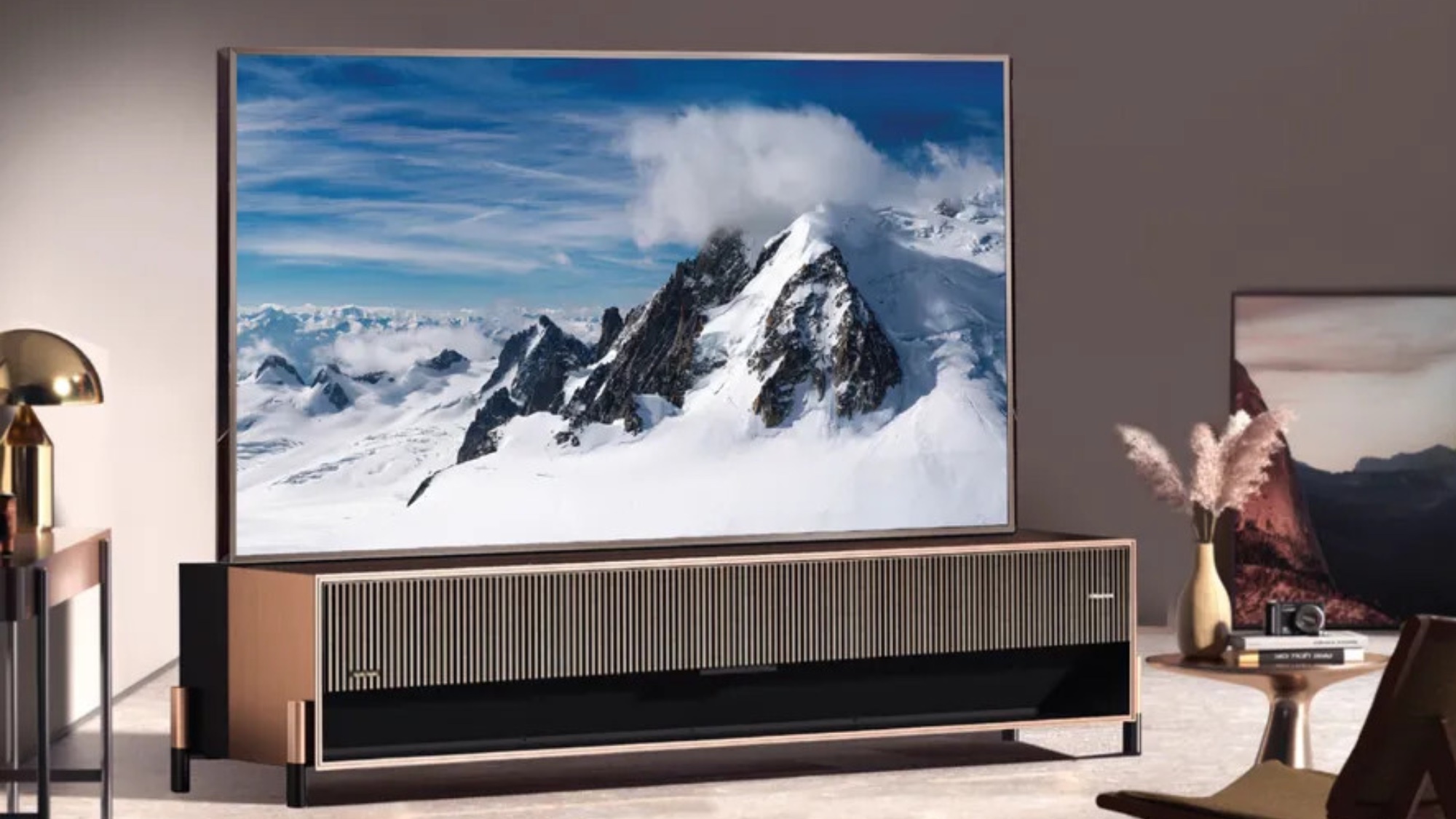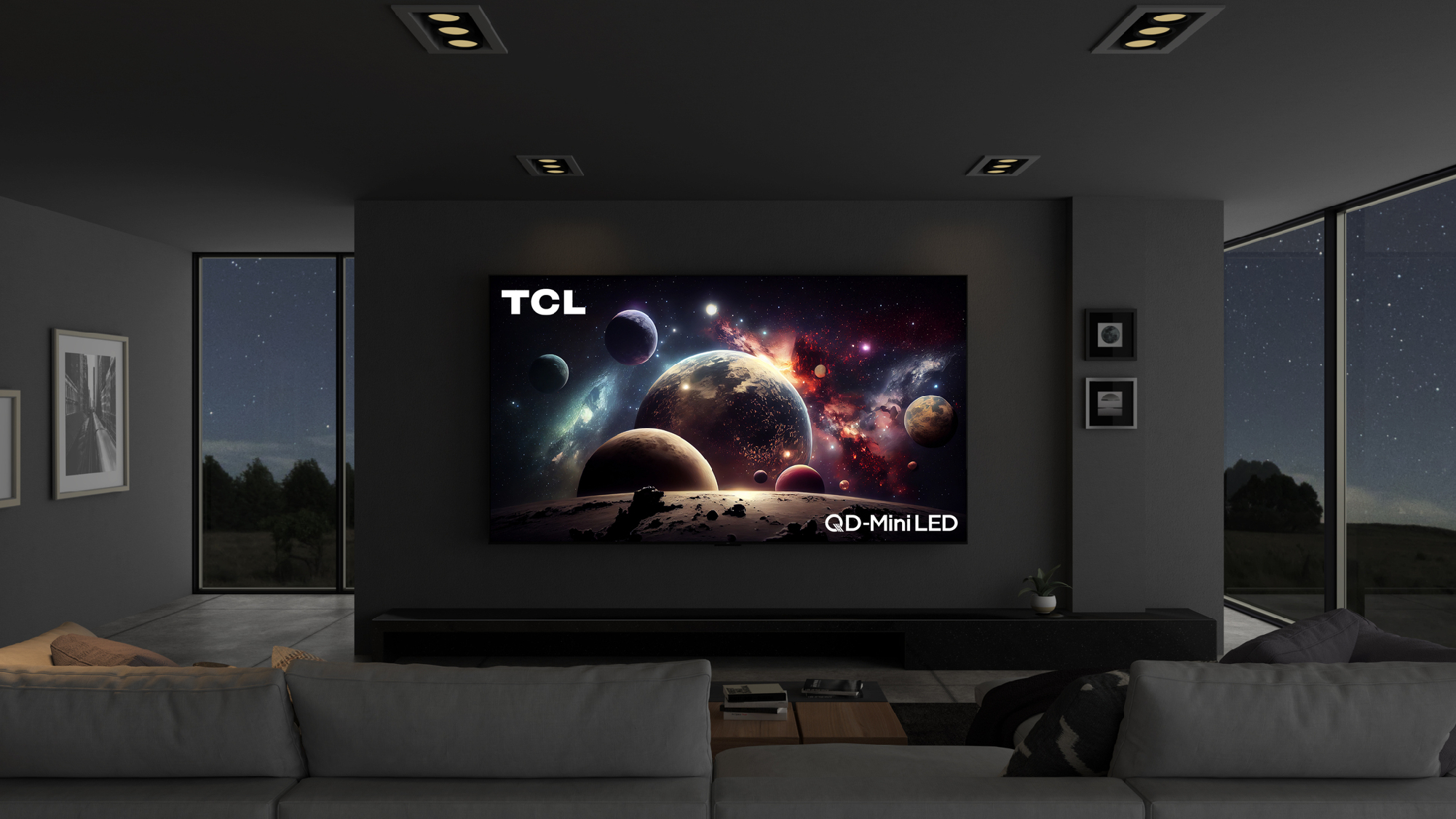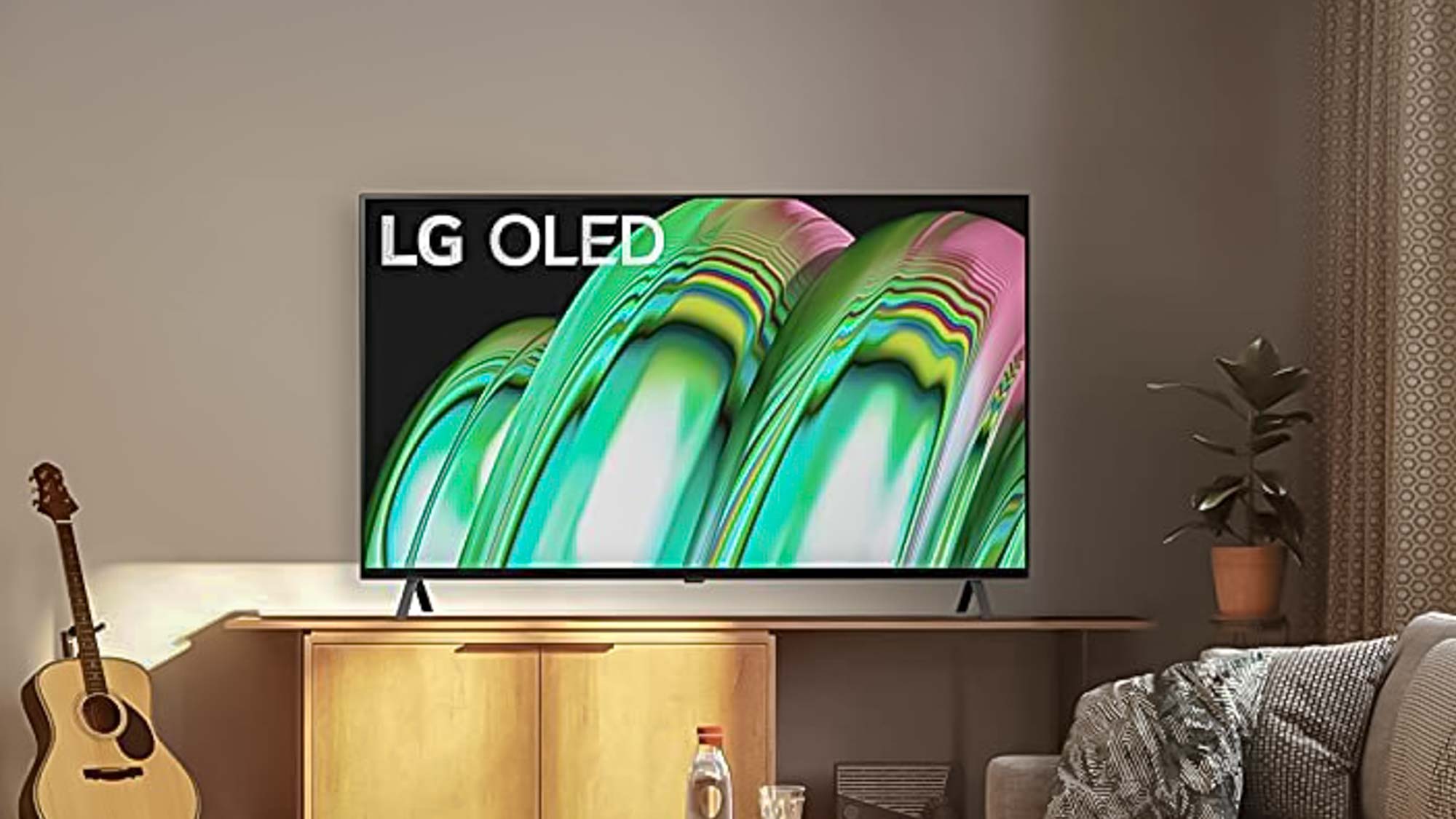
This is going to be an unpopular opinion, but I'm just going to come right out and say it: TVs are getting too big. At this point, some manufacturers are only releasing high-spec models in screen sizes over 100 inches, and it feels like they're using them as lures to get us to buy a bigger screen than we need.
For example, in the Hisense 2024 TV lineup there's the new Hisense 110UX Mini-LED TV that broke every possible test metric at CES 2024. It's a great TV, but again, it's only available at 110 inches. Same for the new 115-inch TCL QM89 Mini-LED TV. These are great TVs that most folks won't have the space — or the budget — to buy.
I’m just not sold on this new big screen era that TV makers are trying to foist on consumers. I find that these bulky screens are harder to set up than laser projectors and often cost much more. Add to that the limited value in using a screen at 85-inch or above in just 4K resolution, and there’s literally no benefit in acquiring a TV at that range unless it’s an 8K behemoth like the Samsung QN900D QLED.
Thus, it’s time TVs took a chill pill and returned to their smaller roots — bringing with them all the high tech features found on these larger models.
Era of the home theatre

Before we dive in here, let it be known that Hisense and TCL aren't the only offenders here: LG too is launching its own 98-inch QNED — proving that the 100-inch mark is soon to be the norm, while Samsung has started making many of its most popular TVs in 98-inch screen sizes. The latter isn't so bad because they're just taking what's popular and supersizing it, but it's still contributing to the problem.
Alongside its 110UX Mini-LED TV, Hisense is also launching two other displays well above the 65-inch range this year. These include the newly announced Hisense U9N Mini-LED TV, which will come in both 75-inch and 85-inch sizes, as well as the 98UX Mini-LED TV that, as the name suggests, will only be available in 98-inch.
“When you want to watch a movie, you want to feel like you're in the best seat in the house, immersed in the story. If you like sports, you want to take in all the action and feel like you're at the match alongside leading athletes competing in the world's greatest races."
TCL
TCL has gone on the record saying that it wants to load up its biggest TVs with the best technology: “When you want to watch a movie, you want to feel like you're in the best seat in the house, immersed in the story.” That was back when it was launching among its first 98-inch TVs, one “that harnesses the latest innovations in technology and hardware to provide unparalleled clarity and sound.”
You can't blame them for loading up the biggest TVs with the best technology — that's just business after all — but it certainly locks out folks with smaller living spaces, like apartment dwellers, from getting the best viewing experiences.
These ultra-big-screen TVs are also ludicrously expensive: Sony launched its first 98-inch TV last year with a starting price of $10,000. Remember Hisense's U9N Mini-LED
TV we were just talking about? The 85-inch version is launching at $4,000 — not exactly a steal compared to its 100-inch laser TVs that cost around $2,000.
Shouldn’t 65-inch models get some of these same advanced features at a far less asking price for those unwilling or unable to make the jump to a 100-inch TV?
A case for smaller screens

While you might think having the biggest screen brings the best immersion possible, that’s not always the case. Aside from the TV’s own internals, there’s a ton of other factors you’ll have to consider when looking at what size TV to buy.
The best reason for purchasing a larger screen is for those that tend to host more social gatherings, as no matter how many people show up for the latest New York Knicks game few will miss the nail-biting action on a 100-inch screen.
Still, optimal viewing comes down to distance from the display. If you’re sitting four to seven feet away from the TV, you don’t need one of the best 75-inch TVs. Even a 70-inch TV alone proves a bit overkill.
Then there’s mounting and moving the TV wherever necessary. Say you end up having to move out or change locations, bringing that 100-in TV with you doesn’t sound all-too fun. While we don’t know the exact weight, the Hisense 110UX Mini-LED TV, as one example, could sit anywhere around 150 to 200 pounds, which means you’re certainly not moving it all by yourself.
But the benefits of leveraging all the most advanced features might outweigh these considerations — especially for those where budget isn’t a factor.
Outlook
Despite my protests, I'm not expecting 100-inch TVs to disappear. In fact, TVs are likely going to continue to get even larger if both TCL and Hisense are concerned. This size of display isn't for everyone, most obviously in price, but the features wrought with them should be carried over in some capacity to smaller sizes.
As I mentioned earlier, I'm a major advocate for laser projectors. These tend to offer a wide range of sizes for practically any household, yet do still sport rather high price tags depending on where you look. The Formovie Theater, which I use as my main display, comes in at around $3,000, while the JMGO N1 Ultra — our current pick for the best projector of 2024 — comes in at just $2,300.
While they're not as cheap as the best budget TVs, at least they're easy to move and setup by yourself and give you a bit more breathing room in creating the perfect home entertainment set up. They can also go far larger, with both the Formovie Theater and the JMGO N1 topping out at 150 inches across.
I'm reserving the right to change my mind on this — but, given their price and unobtainable nature, 100-inch TVs just feel like overkill to me.
More from Tom's Guide
Sign up to get the BEST of Tom's Guide direct to your inbox.
Get instant access to breaking news, the hottest reviews, great deals and helpful tips.

Ryan Epps is a Staff Writer under the TV/AV section at Tom's Guide focusing on TVs and projectors. When not researching PHOLEDs and writing about the next major innovation in the projector space, he's consuming random anime from the 90's, playing Dark Souls 3 again, or reading yet another Haruki Murakami novel.
